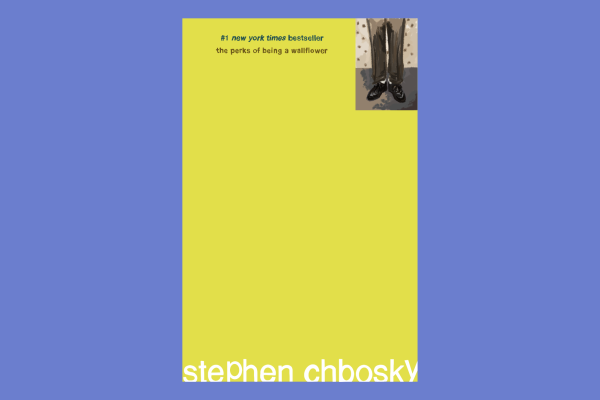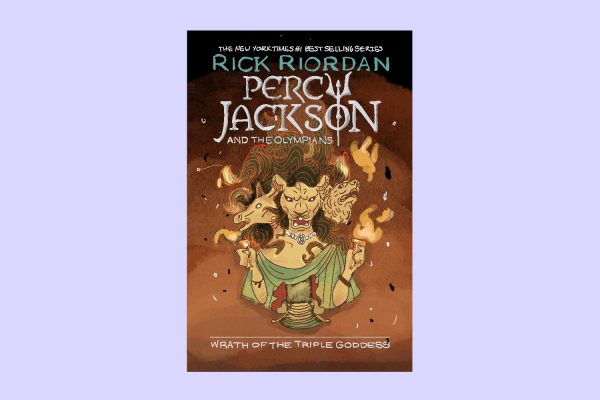“Writers & Lovers” by Lily King
“There’s a particular feeling in your body when something goes right after a long time of things going wrong. It feels warm and sweet and loose.”
“Writers & Lovers” by Lily King is one of those books that I’d always see cool girls reading on the subway. It took a few years, but I finally caved and jumped on the bandwagon. The novel follows the life of 31-year-old Casey who starts anew in life after a bad breakup and her mother’s death. She works at a little restaurant in Boston and also spends time on a novel that she started years ago, having trouble believing in herself and her art. In the midst of personal challenges, she struggles to finish her novel and is faced with even more conflict when she ends up dating two men within her Bostonian literary circle.
The book is warm and vulnerable, with delicate prose and deep messages within the seemingly mundane plot. Casey’s uncertainty was relatable and her attitude sweet — reading the book felt like having a bowl of soup on a cold day. Above all, “Writers & Lovers” taught me that there is no need to fear when turning a new corner in life.
— Alexa Donovan, Arts Editor
“The Lightmaker’s Manifesto: How to Work for Change without Losing Your Joy” by Karen Walrond

Though I first picked up “The Lightmaker’s Manifesto” by Karen Walrond a couple years ago, its themes of advocacy and hope will always be profoundly applicable — now more than ever — and rereading the book this month has been nothing short of revitalizing.
The four-part book, which gives readers an optimistic framework for activism, is filled with anecdotes about Walrod’s advocacy work, ranging from professional experiences as a journalist to personal stories as a Black mother. She encourages readers to stay true to their values even in seemingly bleak realities and provides tangible strategies to “lean into grounded yet unfettered optimism” — such as journaling, daily intention-setting and consistent practices of self-care — illustrating that meaningful activism can take on many forms.
Finding joy rather than discouragement in the journey toward change is one of the most revolutionary acts one can take, and it is vital to the process of creating change that is rooted in both liberation and love.
— Anjali Mehta, Deputy Copy Chief
“The Perks of Being a Wallflower” by Stephen Chbosky

For me, “The Perks of Being a Wallflower” is the literary equivalent of a warm embrace. In its raw and timeless pages, the novel embodies the state of feeling lonely, despite never really being alone.
Set in the early 1990s, the novel follows Charlie, a shy high school first-year, as he befriends seniors Sam and Patrick and experiences all that adolescence has to offer — from parties and football games to “infinite” moments of sheer bliss that make him feel limitless and “young in a good way.” Told through a series of letters addressed to an anonymous friend, the book tastefully weaves themes like abuse, sexuality and unresolved trauma into Charlie’s introspective narrative that readers can relate to. His language is soul-bearing and vulnerable, yet profound and razor-sharp.
I read “Perks” for the first time when I was also a first-year in high school, but I revisit it like an old friend, time and time again. While this novel is certainly heavy, it is also a liberating and impactful piece that I highly recommend for anyone who needs a reminder that this is the youngest you’ll ever be.
You may have seen the 2012 movie, but it doesn’t count — the book is so much better.
— Aashna Miharia, News Editor
“Wrath of the Triple Goddess,” by Rick Riordan

I picked up my first Percy Jackson book in elementary school, initiating my love for fantasy novels and reading. Since then, I’ve read anything and everything related to Percy Jackson, always eager to explore more stories from Greek mythology and demigods.
Riordan’s “The Senior Year Adventures” trilogy re-introduces Percy’s story as he enters his senior year of high school, tasked with finding three different letters of recommendation from Greek gods that would help him get into his dream college, New Rome University.
“Wrath of the Triple Goddess,” the second book in the trilogy, follows Percy as he attempts to secure a second letter of recommendation from Hecate, the goddess of magic. He’s tasked with caring for her pets while she is away during Halloween week, but Percy and his friends begin to push their luck as magical potions begin to explode and ancient spirits are awakened.
Through this book, Riordan shows the true power of Percy Jackson — his personality and compassionate morals that differentiate him from the average demigod — reminding readers why he is considered a hero and one of the greatest demigods of his time.
— Mariana Arboleda, Contributing Writer
Contact the Arts Desk at [email protected].
This post was originally published on here







